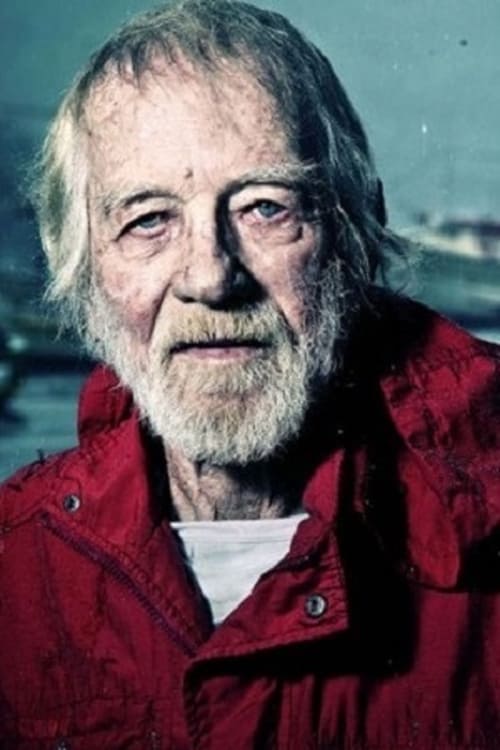Arduíno Colassanti
出生 : 1936-02-14, Livorno, Italy
死亡 : 2014-02-21
略歴
Arduíno Colassanti (15 February 1936 – 22 February 2014) was an Italian-born Brazilian actor. With a 40-year span, Colassanti's mainly associated with films made during the 1960s an 1970s, under the Cinema Novo (Brazilian New Wave) movement. He's known for portraing the titular frenchman in 1971s "Como Era Gostoso o Meu Francês" (How Tasty Was My Little Frenchman).
Seen as one of the main leading men of Cinema Novo by his distinguishable blond hair and blue eyes, during his career Colassanti was directed by filmmakers such as Nelson Pereira dos Santos, Leon Hirszman, Walter Lima Jr., Joaquim Pedro de Andrade, Tereza Trautman and Luiz Carlos Lacerda.
Born in Livorno, Italy, Colassanti was also a surfer and an pioneer in the early steps of aquatic photography in Brazil. He spent his twillight years in the city of Niterói, where he passed and was buried in 2014.

Homem do Café
In an empty city, scorched by the sun, the young and old confuse the fever of sunstroke with the delicate birth of passion. Like ghosts, they hover around buildings and endless flatlands in search of the ever elusive love. Inspired by 19th century Russian short stories, the plots weave and unravel together in the improbable city of Brasilia – a distorted mirror-image of the Soviet utopia – located in the heart of the Brazilian desert.

Chefe dos Selvagens
Deep in the Amazon rain forest, there is a lost subterranean city. The place was built by Vikings who crossed the Atlantic Ocean and ventured up the Amazon River, and shelters a mysterious treasure. In order to find the secret location, Bárbara and the children Riacho and Manhã will have to face many challenges. Vicious snakes and dangerous pendulum blades are only the beginning of our heroes' adventures.

Pescador
The life of Brazilian actress Odete Lara, muse of the movement called Cinema Novo in Brazil, who exchanged stardom for a quiet and religious life.

Parceiro de Bilhar - Rio
The film tells the story of an intuitive, adventurous man who loved his country and being Brazilian. This man fought to be loyal to himself. His music is a transparent portrait of his genius, intuition, freedom, adventure and passion for Brazil.

Self
"Portraits and excerpts from Brazilian films from all times. Actors, directors and images that affirm cinema."

In a Rio de Janeiro after the catastrophe, only the hills were immune to a flood that left the asphalt submerged. While the Navy is rationing provisions and some are sacrificing themselves to avoid starvation, a diver goes to the bottom of the sea and finds a submerged civilization there.

The movie shows the life of brazilian actress Leila Diniz, who dies in a plane crash.

Pai
Tereza tries to leave her past and forge her own destiny and happiness by going through several affairs.

Blaer
Quilombo dos Palmares was a real-life democratic society, created in Brazil in the 17th century. This incredibly elaborate (and surprisingly little-known) film traces the origins of Quilombo, which began as a community of freed slaves. The colony becomes a safe harbor for other outcasts of the world, including Indians and Jews. Ganga Zumba (Toni Tornado) becomes president of Quilombo, the first freely elected leader in the Western Hemisphere. Naturally, the ruling Portuguese want to subjugate Zumba and his followers, but the Quilombians are ready for their would-be oppressors. The end of this Brave New World is not pleasant, but the followers of Zumba and his ideals take to the hills, where they honor his memory to this day. Writer/director Carlos Diegues takes every available opportunity to compare the rise and fall of Quilombo with the state of affairs in modern-day Brazil.

Cristo
Fantasy comedy about Brazilian writer Oswald de Andrade, one of the most important icons of Modernism in Brazil. In the film, Oswald is played by two actors: Ítala Nandi, as his feminine anima, and Flávio Galvão, as the masculine half.

Borba Gato
The life of Fernão Dias, a 17th century Brazilian frontiersman known as "the Emerald Hunter".

Documentary on famous Brazilian actresses, female directors and the role of women in Brazilian film history.

Peter
Married woman only feels well when she's in love. In search of a ravishing love, she has many love affairs, with her husband's consent.

The critical success in France of How Tasty Was My Little Frenchman made possible dos Santos’ delirious science-fiction vision of free love in a post-apocalyptic wilderness besieged by flesh hungry zombies contaminated by an unnamed nuclear attack. Who is Beta? follows two statuesque survivors drawn irresistibly together only to be entranced by the arrival and sudden disappearance of a third, the bewitching raven haired Beta. With its cartoon-like depiction of extreme violence and desire, Who is Beta? offers a heady Pop-infused companion to Hunger for Love. Yet beneath its giddy play of surfaces, dos Santos' underappreciated film gradually reveals a darkly ambiguous metaphoric dimension. -Harvard Film Archive

Tristão/Oxóssi
On Carnival's eve, girl dreams of a man to stay with her during these four days. She meets a photographer, with whom she has an affair.

Francês
Brazil, 1594. The Tupinambás natives are friends of the French and their enemies are the Tupiniquins, friends of the Portuguese. A Frenchman is captured by the Tupinambás, and in spite of his trial to convince them that he is French, they believe he is Portuguese. The Frenchman becomes their slave, and maritally lives with Seboipepe.

In a small town in the State of Minas Gerais, Brazil, a woman rebels against local morality after her child dies, with tragic results.

Porfírio
Father Simão Bacamarte arrives in the small town of Serafim to investigate a certain phenomenon of madness.

Year 2000. Brazil was partially devastated by the Third World War. An immigrant family arrives in a small town, which they call "I Forgot." The trio is recruited by an indigenist to pretend to be indigenous during the visit of a general. In the dilemma of integrating into the system or preserving individual freedom, the family moves toward disintegration as the city prepares to launch a space rocket.

Renato
Couple whose marriage is at stake delve into the past, with the help of a diary and some home movies. In these movies, Helena, the woman's suicidal friend, has an important role.

An extended research tour of US university film programs introduced dos Santos to the American avant-garde filmmakers, among them Jonas Mekas and Stan Brakhage, who would directly inspire his formally radical adaptation of an allegorical short story about adultery and colonialism by Guilherme de Figueiredo. Filmed in both Manhattan and Brazil and set against the background of the Vietnam War and its protests, Hunger for Love uses a rigorously abstract soundtrack and narrative structure to evoke the acute paranoia of the period building up to the December 1968 military coup that tipped Brazil perilously close to a conservative dictatorship. With its harsh critique of the decadent tendencies of the Sixties counterculture, Hunger for Love offers a key expression of the self-consciously “ideological” phase of Cinema Novo. -Harvard Film Archive

Pedro Paulo
Chronicles the life of a 17 year-old girl living in the upper-class Rio de Janeiro neighbourhood of Ipanema. Márcia lives a life of parties and spend her days among bohemians, musicians and intellectuals. While seeming happy in the outside, she's extremely anguished inside. Based on the famous song by Antonio Carlos Jobim and Vinicius de Moraes.

A shockingly irreverent follow-up to the rural austerity of Barren Lives, dos Santos’ Godardian social satire owes more than a nod to the self-conscious antics of the French New Wave. The pampered son of a general, El Justicero is a hipster playboy who fancies himself a James Bond/Jean Paul Sartre urban hero. “Archetypical” yet “full of contradictions,” he sees that justice is achieved for the disadvantaged while taking advantage of certain bourgeois perks. His exploits are closely followed and eventually directed by his biographer who decides a film is not only more lucrative than a book, but it gives him the luxury of reviewing previous scenes. Unlike Bond, El Jus eventually experiences an awakening which threatens to compromise the entertainment value and glamour of his life story. - Harvard Film Archive

Originally produced for German TV, Improvised and Purposeful is a firsthand look at the "Cinema Novo" movement (otherwise known as the 'Brazilian New Wave'). Director Joaquim Pedro de Andrade focuses on six Cinema Novo filmmakers working in Rio in 1967.












